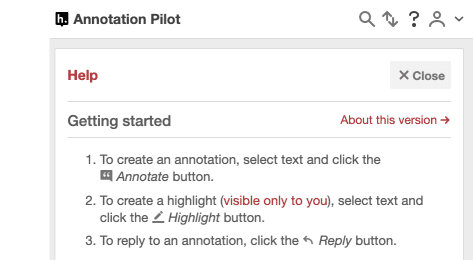Technology is always fun. Recently we implemented Hypothesis within iLearn (Moodle). Hypothesis is a great open-source project that allows for annotation and bookmarking on the web (and PDF’s within Google Drive).
Recently, we’ve discovered an issue. Hypothesis is so smart that it knows a document is a document even if you’ve made a copy of it.
In K-12, we want to teach students good annotation skills. Frequently, teachers may have 150 students. In order to make things manageable, the teacher certainly doesn’t want all 150 students annotating the same document. So, teachers generally create groups. Thus, a teacher may have a First Hour group, Second Hour, etc. We discovered that Hypothesis doesn’t respect groups. Not a surprise since this is a limitation within the LTI process between iLearn (Moodle) and other programs. So, we created our PDF in Google Drive and used the “Make a copy” feature to create five different versions of the document. We then shared the “first hour copy” with, and this will not be a surprise, our “First Hour” group. We shared our “second hour copy” with our “Second Hour” group. To our surprise, first hour can see the annotations of second hour. Second hour can see the annotations of the First Hour group.
This is apparently a known issue (and now we know too). See. Hypothesis uses a digital fingerprint, not the document meta-data.
Right, for better and worse, Hypothesis is too smart for that. Better, because those annotations are deeply anchored to the specific text and document and could potentially be resurfaced to the user in various contexts. For example, if the student was to use H after the class and came back to the same story/article, we could technically surface their annotations for them. Worse, because you can’t do what you are trying to do which is completely pedagogically sound and necessary.
– Hypothesis Guru
There is a workaround. “Printing” a document to a PDF multiple times will create different fingerprints. This obviously adds quite a few “clicks” to the process.
There are some exciting opportunities with this as well. Students can share multiple annotations across documents.
The Hypothesis Group is aware of the issue and working on it. We look forward to continuing this exciting work.

